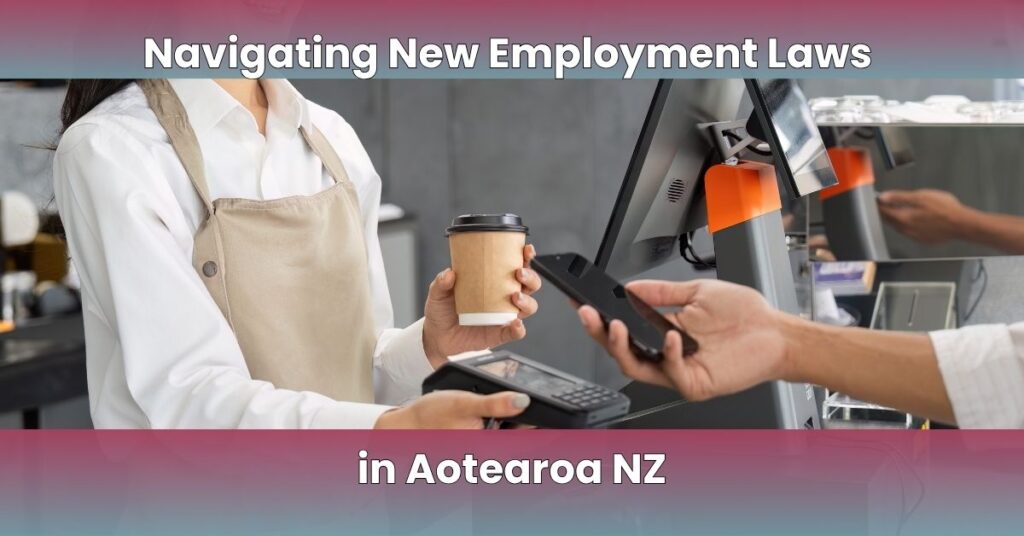A Shifting Landscape for Workers

Love them or dislike them, the coalition government’s implemented and proposed changes will significantly impact workers across New Zealand’s employment landscape.
The National-led coalition, alongside ACT and New Zealand First, has introduced reforms to enhance employer flexibility while adjusting employee protections.
These changes, some already enacted and others under consideration, are reshaping workplace dynamics, grievance processes, and contractor classifications.
This article examines the key amendments to New Zealand’s employment laws and their implications for workers and employers.
Expanded 90-Day Trial Periods
In December 2023, the Employment Relations (Trial Periods) Amendment Bill extended 90-day trial periods to all businesses, removing the previous restriction to employers with fewer than 20 employees. Employers can now terminate new employees within 90 days without facing unjustified dismissal claims, provided the trial period is specified in the employment agreement. Employees retain the right to pursue other claims, such as discrimination or unjustified disadvantage. Employers must strictly comply with legal requirements to avoid challenges. This reform reduces hiring risks for businesses but may increase uncertainty for new employees.
Repeal of Fair Pay Agreements
By late 2023, the coalition repealed the Fair Pay Agreement regime, which aimed to improve wages and conditions through industry-wide bargaining. This halted negotiations in sectors like hospitality, cleaning, early childhood education, and supermarkets. The government favors individual and enterprise-level agreements, potentially weakening collective bargaining power. Critics argue this undermines wage equity, while supporters highlight increased business flexibility.

Minimum Wage Adjustment
Effective April 1, 2025, the adult minimum wage rose from $23.15 to $23.50 per hour, approximately $48,880 annually for a 40-hour workweek.
This modest increase aims to help workers manage inflation while considering business costs in a tough economic climate.
The government plans moderate annual adjustments to align with economic conditions.
Income Threshold for Unjustified Dismissal Claims
A proposed amendment to the Employment Relations Act 2000, expected in 2025, would prevent employees earning over $180,000 annually (base salary, excluding incentives) from raising unjustified dismissal claims, affecting about 3.4% of the workforce. The threshold will be reviewed annually to reflect average earnings. The policy applies to new agreements immediately and existing ones after a 12-month transition with mutual consent. High earners can still pursue other grievances, like discrimination, and negotiate contractual protections. The proposal has sparked debate over reduced protections for senior staff versus lower employer risks in critical roles.
Personal Grievance Process Reforms
Proposed changes to the personal grievance process aim to account for employee behavior in remedy awards:
- No Remedies for Serious Misconduct: Employees guilty of serious misconduct, such as violence, bullying, or theft, would be ineligible for compensation or reinstatement.
- Reduced Remedies for Contributory Behavior: Actions like repeated lateness or poor performance could lead to remedy reductions of up to 100%.
- Employee Obstruction Consideration: Courts and the Employment Relations Authority would assess whether employee actions hindered employer obligations.
These reforms seek fairer dispute resolutions but may disproportionately impact less senior employees and raise concerns about alignment with international labor standards.
Contractor Classification Gateway Test
To clarify contractor status, a proposed “gateway test” would classify a worker as a contractor if four criteria are met:
- A written agreement designates them as a contractor.
- The business allows work for others, including competitors.
- No specific hours or minimum time is required, or subcontracting is permitted.
- The contract cannot be terminated for refusing additional tasks.
If unmet, existing tests determine status. This aims to reduce misclassification disputes but may limit contractors’ ability to challenge their status, potentially reducing access to employee protections.
Termination by Agreement Bill
The Employment Relations (Termination of Employment by Agreement) Amendment Bill would allow mutual employment termination agreements without future unjustified dismissal claims. Pre-termination discussions would be inadmissible in disputes, subject to conditions. While intended to facilitate amicable separations, concerns exist about potential coercion, especially for vulnerable workers.
Removal of Pay Secrecy Clauses
The Employee Remuneration Disclosure Bill would prohibit adverse actions against employees discussing their pay. This reform aims to enhance pay transparency, potentially reducing wage disparities, particularly for women and marginalised groups, by eliminating “pay secrecy” clauses.
As our employment landscape shifts, staying informed is essential for navigating these changes with confidence. The Coromandel Workers Council is here to support you. Whether you’re an employer updating workplace policies or an employee seeking clarity on your rights, our team offers expert guidance tailored to your needs. Have questions about how these reforms affect you? Contact the Coromandel Workers Council today for personalised assistance.
www.cwc.org.nz. / tautoko@cwc.org.nz / 027 296 5276
Words by the Coromandel Workers Council
Coromind: Coromandel’s Collaborative Magazine

Help us take Coromind Magazine to new heights by becoming a member. Click here
Change the Weather for Your Business: Advertise with Us.
Advertise your business in the whole Hauraki Coromandel in the coolest Coromandel Art Magazine, from Waihi Beach/Paeroa /Thames up to the Great Barrier Island.
Advertise Smarter, Not Harder: Get in Touch






